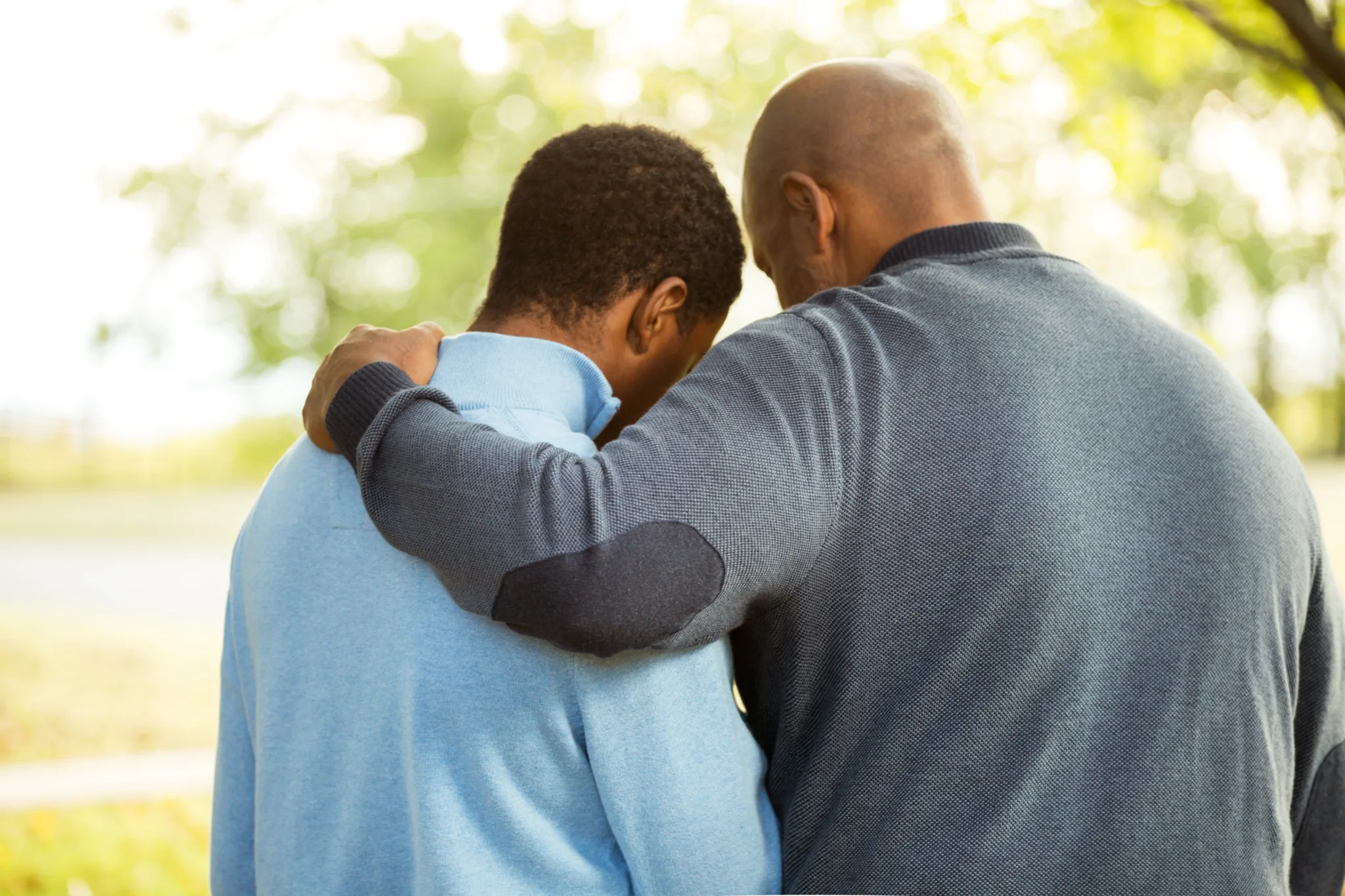
Even when you’re in a healthy mental state, grief can feel overwhelming. Dealing with the death of a loved one or another significant loss is even more challenging when you’re struggling with mental health issues.
If you’re in a period of bereavement, it may be helpful to know what you can expect, like the stages of grief and the short and long term effects of grief. That way you can prepare yourself for the coming emotions and take steps to promote your mental health in this tough time.
The effects of grief on mental health
Grief is often described as the sorrow and pain that follows a significant loss. Even though it’s often viewed negatively, grief is a normal and appropriate response to loss. While grief looks different person to person, an individual can also get stuck in the grieving process when he or she doesn’t develop appropriate ways to cope.
For someone who is already facing the hard emotions that come along with a mental health condition like—anxiety, depression or bipolar disorder, the intensity of grief can feel like too much to bear. Symptoms may be exacerbated by the distress of loss, and your coping and emotional regulation abilities will likely be tested.
The effects of grief on mental health through the stages of grief
The effects of grief on a person are as diverse as the people who live through grief, but there are some commonalities that are best understood by looking through the lens of the stages of grief. These stages were developed by Elizabeth Kubler Ross in 1969, and are still used today to outline the feelings that are generally experienced alongside a big loss.
Denial
In the first stage, people are prone to use denial as a defense mechanism to ease the blow of the death of a loved one. In mental health treatment you’ll learn that sometimes your mind acts numb to avoid hard things. While this may be soothing temporarily, it’s necessary to move on at some point.
Anger
The pain of loss is often redirected and takes the form of anger. It’s easier to blame others than to focus on the reality of a loss. Letting anger fester can damage your mental health, though. If you linger in the anger stage you may notice that you have a negative mood, you’re quickly irritated and you act defensively.
Bargaining
The bargaining stage of grief is fraught with questions and spiritual searching. If you find yourself asking “what if” or “why me?” you may be in this phase of grief. If you’re struggling to move past bargaining, it’s likely you will experience anxiety, self-doubt and have trouble finding peace in your life.
Depression
The fourth stage of grief is an experience of intense sorrow. While all the stages of grief can be drawn out, depression is one of the most common long term effects of grief. While depression following a loss and clinical depression are different, the former can definitely turn into the latter. Lethargy, apathy, lack of enjoyment, self-isolation and thoughts of self-harm are all possible effects.
Acceptance
The last stage of grief is called acceptance, and while this doesn’t mean that a person is happy about what transpired, he or she has come to terms with the reality of the event and is working towards rebuilding a normal life. Symptoms of grief can still manifest during this period, but they will not normally be severe enough to impair daily functioning.
Short term effects of grief
In addition to the effects of grief on mental health stage-by-stage, here are some other symptoms you may notice in yourself or another.
- Confusion
- Shock
- Disbelief
- Frustration
- Racing thoughts
- Physical exhaustion
- Inability to do normal tasks
- Slacking in personal hygiene
- Sleep problems
- Poor immune system functioning
- Indigestion
- Higher stress levels
- Embarrassment
- Guilt
- Spiritual distress
- Inability to concentrate or make decisions
- Risk taking behaviors
- Impulsivity
- Thoughts of self-harm
- Distrust
The short and long term effects of grief on mental health can be mild to serious, and all are worthy of care. If you’re experiencing strong emotions following a loss and they’ve uncovered or exacerbated a mental health issue, the best way to move forward is to address both in therapy.
If you’re struggling with grief, mental health concerns or both, it’s time to get help. You don’t have to manage the strong feelings and overpowering stress on your own. Compassionate and accepting professionals at High Focus Centers can walk with you in the hardest days of your life and help you find healing. Call now.
Recent Posts
- The First Holidays Sober: Why It Hurts More Than You Expect
- How to Know When Therapy Is Not Enough for Mental Health Support
- Can I Work or Go to School While in Outpatient Treatment?
- Why the Holidays Can Be Hard: Grief, Sobriety and Emotional Overload
- Oxygen Keeps Us Alive, but Dopamine Keeps Us Living



